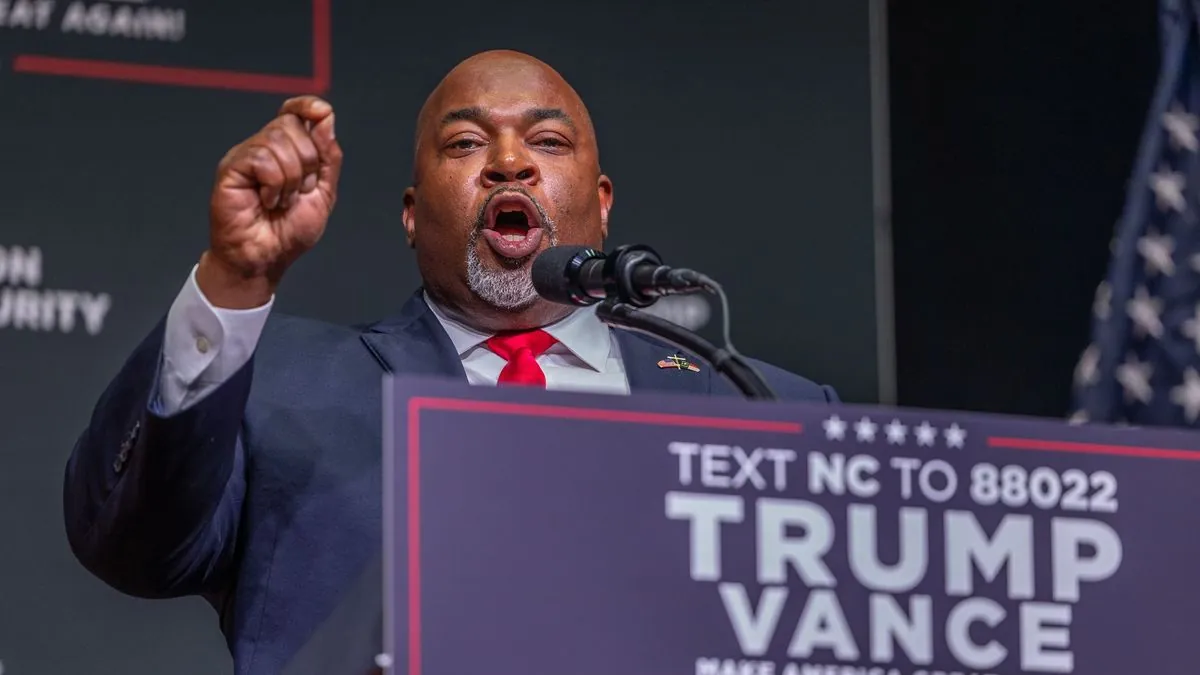In the Tar Heel State, a political storm is brewing around Mark Robinson, the Republican nominee for North Carolina governor. The controversy surrounding Robinson's alleged connection to a porn site user with controversial views has become a litmus test for voter loyalty in the era of Donald Trump.
At a recent Trump rally in Wilmington, the largest city in southeastern North Carolina, many attendees seemed unperturbed by the allegations against Robinson. This reaction echoes a broader trend in American politics, where scandals often fail to significantly impact voter support, particularly among staunch party loyalists.
The accusations against Robinson are serious. The lieutenant governor is allegedly linked to a porn site user who advocated for the reinstatement of slavery, detailed an extramarital affair, and praised Adolf Hitler's "Mein Kampf". Despite these claims, Robinson has vehemently denied any involvement, dismissing the reports as "salacious tabloid lies."
The North Carolina Republican Party has rallied behind Robinson, suggesting that the allegations are politically motivated attacks from the left. This response mirrors the party's approach to controversies surrounding Donald Trump, who faced numerous scandals during his 2016 campaign and presidency.
"We've all done things in our past that we're sorry for. Some of the things are crazy."
This sentiment reflects a growing trend of voters prioritizing party loyalty over individual candidate controversies. It's reminiscent of the support Trump maintained despite various scandals, including the infamous Access Hollywood tape from 2016.
However, not all Republicans are dismissing the allegations. Senator Thom Tillis of North Carolina has expressed serious concerns about the reports, if proven true. This divide within the party highlights the complex nature of political scandals in the current climate.
The Robinson controversy is unfolding against the backdrop of North Carolina's rich political history. As one of the original Thirteen Colonies and the 12th state to join the Union in 1789, North Carolina has long been a battleground for American politics. The state's motto, "Esse quam videri" (To be, rather than to seem), takes on new meaning in light of the current scandal.
Despite the controversy, Robinson's campaign continues. His Democratic opponent, Josh Stein, argues that Robinson was unfit for office even before these latest revelations. The race has become a focal point for discussions about character, accountability, and the evolving nature of political scandals in American democracy.
As the campaign unfolds, North Carolinians will have to weigh their political loyalties against the serious allegations facing Robinson. The outcome of this race could provide valuable insights into the impact of scandals on voter behavior in the current political landscape.
